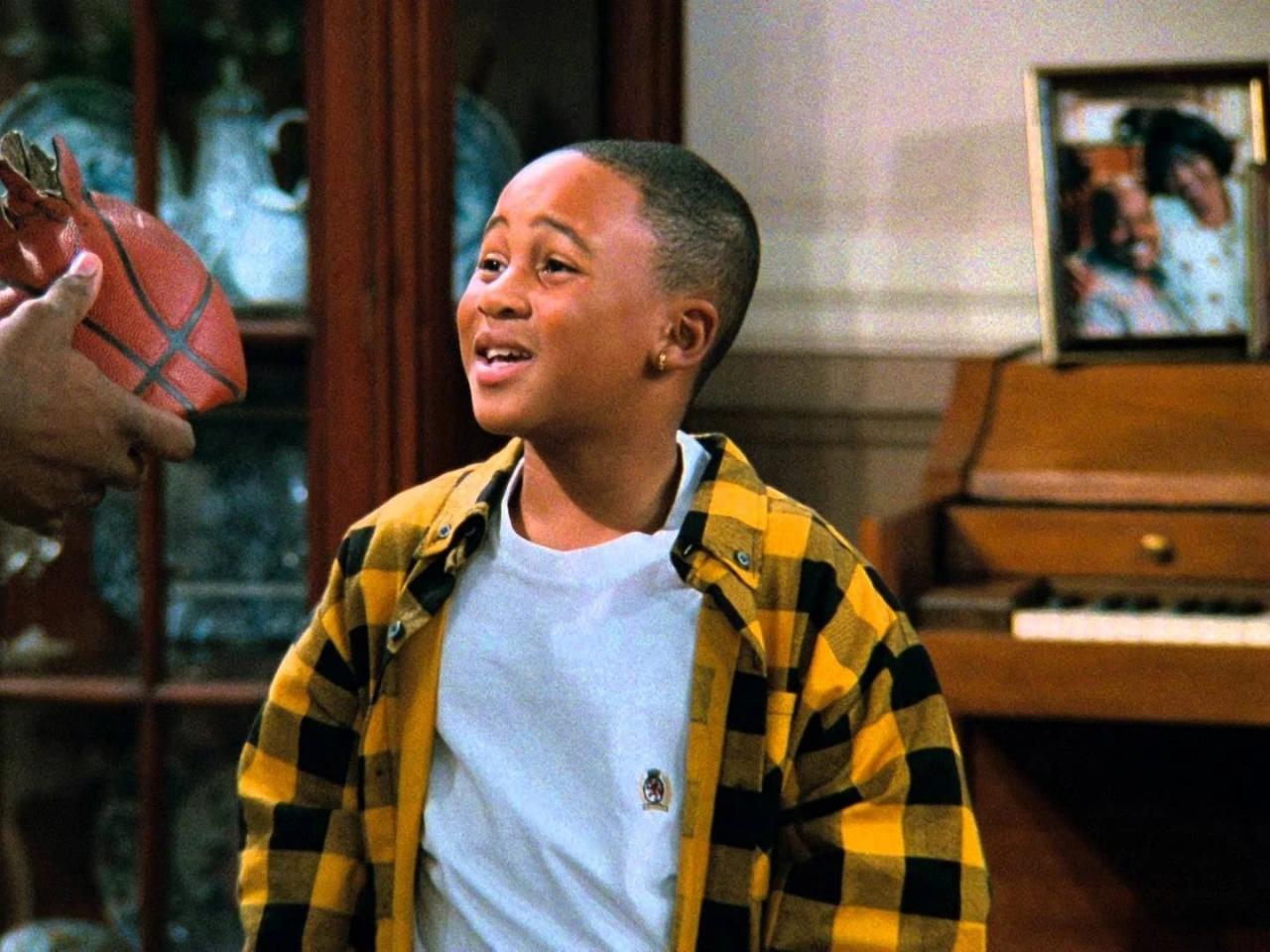
Family Matters delves into the intricate tapestry of family life, examining the profound impact it has on individuals and society as a whole. From the dynamics that shape our development to the values that guide our decisions, family plays a pivotal role in our lives.
This comprehensive exploration unravels the complexities of family structures, the evolution of family roles, and the challenges and opportunities families face in a rapidly changing world.
Family Dynamics
The family, a fundamental unit of society, plays a pivotal role in shaping individuals and communities. It provides a nurturing environment, fostering physical, emotional, and social well-being.
In the world of sneakers, the SNKRS app has become a must-have for sneakerheads. The app allows users to purchase limited-edition sneakers directly from Nike. Recently, the app has been used to release the highly anticipated Kendrick Lamar x Nike Cortez collaboration.
The sneakers feature a unique design inspired by Lamar’s album “To Pimp a Butterfly.”
Family structures vary widely across cultures and societies. The traditional nuclear family, consisting of a married couple and their children, remains prevalent in many parts of the world. However, other family forms have gained increasing recognition, including single-parent households, blended families, and extended families that include grandparents, aunts, uncles, and cousins.
Family Relationships
Family relationships are complex and multifaceted. Parents provide guidance, support, and unconditional love, while siblings offer companionship, competition, and a sense of belonging. The quality of these relationships has a profound impact on an individual’s development and well-being.
- Positive family relationships:Characterized by warmth, open communication, and mutual respect, these relationships foster a sense of security, self-esteem, and resilience.
- Negative family relationships:Marked by conflict, criticism, and emotional distance, these relationships can lead to anxiety, depression, and other mental health issues.
Family dynamics are not static but evolve over time. Transitions such as marriage, divorce, and the birth of children can significantly alter family relationships and require adaptation.
Family Values and Beliefs
Families are the foundation of society, and the values and beliefs that they instill in their members play a significant role in shaping the individuals and the communities they live in. These values and beliefs provide a framework for decision-making, behavior, and interactions within the family and beyond.
Common values shared by many families include love, respect, honesty, integrity, and compassion. These values guide family members in their interactions with each other and with the outside world. They help create a sense of belonging, security, and support within the family unit.
Influence of Family Values on Decision-Making and Behavior
Family values have a profound influence on the decisions and behaviors of family members. For example, a family that values education may encourage their children to pursue higher learning, while a family that values financial security may prioritize saving and investing.
Similarly, a family that values honesty may teach their children the importance of being truthful, even when it is difficult.
Cultural and Religious Influences on Family Values
Cultural and religious backgrounds can significantly shape family values. Different cultures have different beliefs about what constitutes a “good” family, and these beliefs can influence the values that families adopt. For example, in some cultures, extended family relationships are highly valued, while in others, nuclear families are more common.
Similarly, religious beliefs can influence family values, such as the importance of marriage, the role of women in the family, and the way children are raised.
Family Roles and Responsibilities
 [/caption]
[/caption]
In the tapestry of family life, each member plays a unique role, contributing to the overall well-being and harmony of the unit. Traditional family roles, shaped by cultural norms and societal expectations, have evolved over time, reflecting changing values and societal structures.
Parental Roles
- Providing physical and emotional care for children
- Nurturing their development and education
- Establishing discipline and boundaries
- Serving as role models and mentors
Child Roles
- Respecting and obeying parents
- Helping with household chores and responsibilities
- Maintaining good grades and behavior
- Developing their own interests and talents
Sibling Roles
- Supporting and protecting each other
- Resolving conflicts peacefully
- Sharing responsibilities and resources
- Creating a bond that lasts a lifetime
Spouse Roles
- Providing emotional and practical support
- Sharing responsibilities for household and childcare
- Maintaining open communication and resolving conflicts
- Nurturing the romantic relationship
Modern family roles have become more fluid, with both parents sharing parental responsibilities, and children and spouses taking on roles that were once traditionally defined. This shift reflects the changing nature of work, family life, and gender roles.
Despite the evolution of family roles, the fundamental responsibilities remain the same: providing care, support, and guidance to one another, fostering a sense of belonging and creating a foundation for healthy and fulfilling lives.
Family Communication and Conflict
Effective communication within families is crucial for fostering healthy relationships, resolving conflicts, and maintaining family unity. It involves open, honest, and respectful dialogue that allows family members to express their thoughts, feelings, and needs.
Speaking of collaborations, the KAWS x Jordan 4 sneakers are still one of the most sought-after sneakers on the market. The sneakers feature a unique design that combines elements from both KAWS and Jordan Brand. If you’re lucky enough to get your hands on a pair, be prepared to pay a pretty penny.
Families exhibit various communication patterns and styles, such as open and direct communication, indirect and subtle communication, and avoidant or conflict-avoiding communication. Identifying these patterns can help families understand their communication dynamics and work towards improving them.
Resolving Conflict
Conflict is an inevitable part of family life. However, families can develop strategies for resolving conflicts in a healthy and constructive manner. This includes active listening, empathy, compromise, and seeking support from outside sources such as family therapists or counselors.
Maintaining Healthy Relationships, Family matters
Maintaining healthy relationships within the family unit requires ongoing effort and commitment. It involves setting clear boundaries, expressing appreciation and affection, and spending quality time together. Families can also establish regular family meetings or activities to facilitate open communication and foster a sense of connection.
Family Support and Resilience
Families play a crucial role in providing support to their members, fostering a sense of belonging and security that enhances resilience and well-being. This support can manifest in various forms, ranging from emotional encouragement to practical assistance.
Emotional Support
- Providing a listening ear and emotional validation
- Offering words of encouragement and reassurance
- Celebrating achievements and providing comfort during setbacks
Practical Support
- Assisting with daily tasks, such as childcare, transportation, or financial assistance
- Providing guidance and advice on important decisions
- Offering a safe and stable environment where individuals can thrive
Fostering Resilience
Families play a pivotal role in promoting resilience by providing a secure base from which individuals can explore and take risks. This support helps individuals develop coping mechanisms, problem-solving skills, and a positive self-concept. Studies have shown that children raised in supportive family environments exhibit higher levels of resilience and are better equipped to handle adversity.
Examples of Family Support
- A family gathering where members share stories and laughter, creating a sense of connection and belonging.
- A parent providing emotional support and guidance to a child facing academic challenges.
- A sibling offering practical assistance to an elderly relative, demonstrating the importance of intergenerational support.
Family and Social Change
The family unit has undergone significant transformations as a result of sweeping social changes in recent times. Factors such as technological advancements, globalization, and economic shifts have profoundly impacted family structures and dynamics, presenting both challenges and opportunities for families.
Technology and Family Life
The rise of technology has had a multifaceted impact on family life. On the one hand, it has facilitated communication and connection among family members, particularly those living in distant locations. Social media platforms, video conferencing tools, and instant messaging apps have made it easier for families to stay in touch and share experiences.
Rapper Drake recently released a new music video for his song “Falling Back.” The video features Drake rapping about his love life and features a cameo appearance from his rumored girlfriend. Meanwhile, Kendrick Lamar’s wife , Whitney Alford, has been making headlines for her recent appearance at the Grammy Awards.
Alford looked stunning in a white gown and was seen supporting her husband throughout the night.
On the other hand, technology can also lead to distractions and reduced face-to-face interactions within families. Excessive screen time and social media use can hinder meaningful conversations and shared activities, potentially straining family relationships.
Globalization and Family Structures
Globalization has led to increased migration and cross-cultural interactions, which have influenced family structures and dynamics. Families may become more diverse in terms of cultural backgrounds and values, presenting opportunities for learning and growth. However, cultural differences can also lead to challenges in communication, expectations, and decision-making.
Additionally, globalization has contributed to the rise of transnational families, where family members live in different countries and maintain close connections through technology and travel.
Economic Shifts and Family Roles
Economic shifts, such as the rise of dual-income families and the increased participation of women in the workforce, have influenced family roles and responsibilities. Traditional gender roles are becoming less rigid, with both parents sharing responsibilities for childcare, housework, and financial support.
However, these economic changes can also lead to increased stress and work-family conflicts, particularly when childcare options are limited or expensive. Families must adapt to these changing circumstances to maintain work-life balance and ensure the well-being of all family members.
Final Wrap-Up
Family Matters underscores the enduring significance of family as a source of support, resilience, and belonging. It emphasizes the importance of nurturing healthy family relationships and adapting to societal shifts while preserving the core values that unite families.
Question Bank: Family Matters
What are the different types of family structures?
Family structures vary widely, including nuclear families, extended families, blended families, single-parent families, and adoptive families.
How do family values influence behavior?
Family values shape decision-making by providing a framework for ethical conduct, priorities, and aspirations.
What are the challenges facing families in the 21st century?
Families today navigate challenges such as globalization, economic shifts, technological advancements, and the changing nature of work and family life.





Leave a Reply